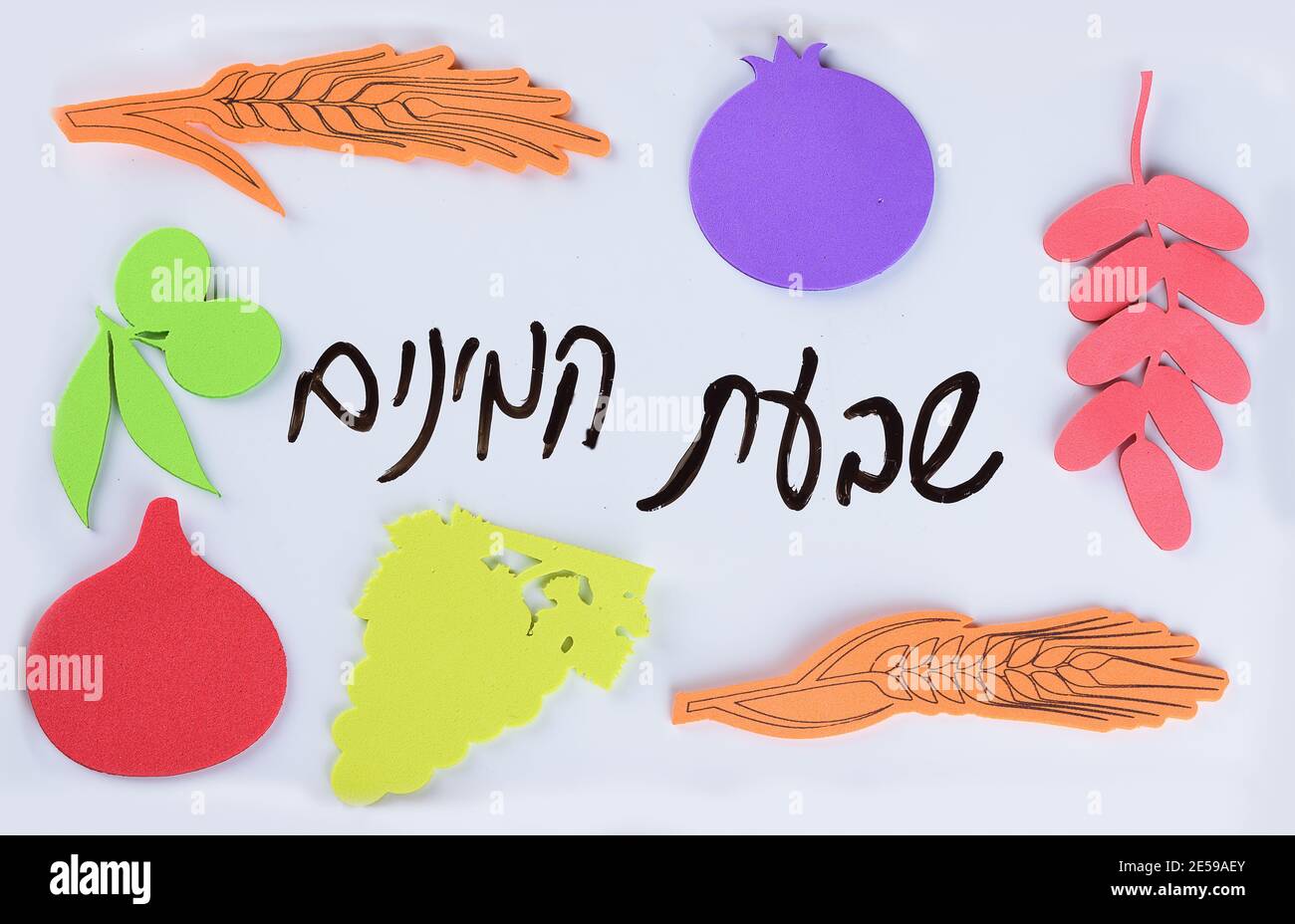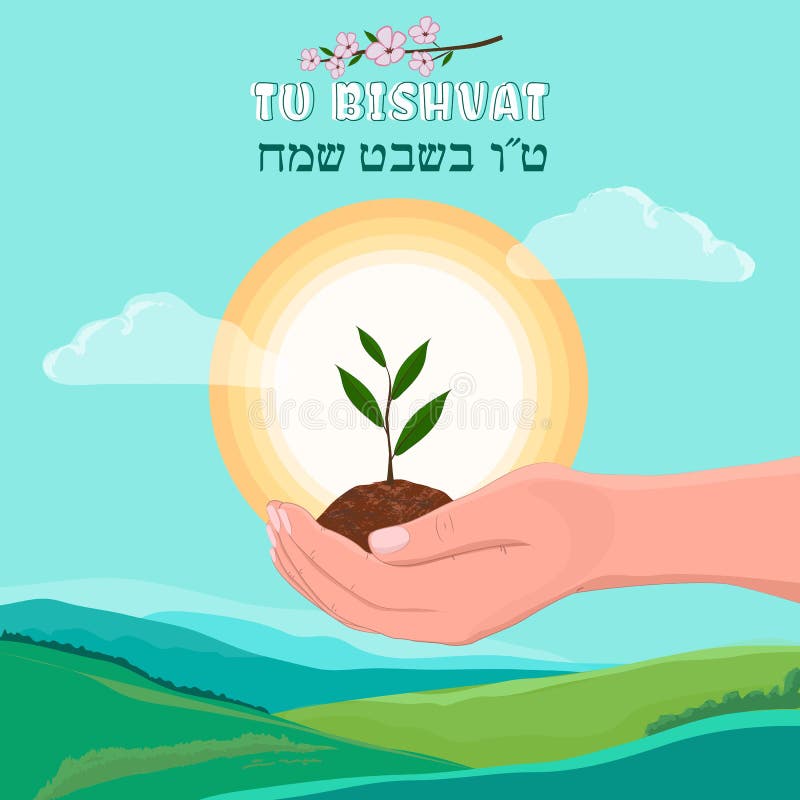Gallery
Photos from events, contest for the best costume, videos from master classes.












The 15th of Shevat on the Jewish calendar—celebrated this year on Thursday, Feb. 13, 2025—is the day that marks the beginning of a “new year” for trees. Commonly known as Tu Bishvat , this day marks the season in which the earliest-blooming trees in the Land of Israel emerge from their winter sleep and begin a new fruit-bearing cycle. Tu B'Shevat, or the 15th of the month of Shevat (שְׁבָט), is the traditional date that marks the beginning of a "New Year for Trees." Though it occurs in January/February on the Gregorian calendar, Tu B'Shevat is associated with the start of spring in Israel (since the earliest-blooming trees begin a new fruit-bearing cycle). Tu BiShvat or Tu B’Shevat or Tu B’Shvat (Hebrew: ט״ו בשבט ) is a minor Jewish holiday, occurring on the 15th day of the Hebrew month of Shevat. It is also called “The New Year of the Trees” or (Hebrew: ראש השנה לאילנות , Rosh HaShanah La’Ilanot). In Hebrew, every letter represents a number. The letter Tet (ט) represents 9, and Vav (ו) is 6. 9+6=15. And when you put Tet (9) and Vav (6) together (ט"ו), it can be pronounced “Tu.” 2. It’s the New Year for Trees. That’s right. The first of Tishrei is the "new year for years" (calculation of the calendar), "for release years" (sabbatical years [citation needed]), jubilees, planting, and for the tithe of vegetables. The first of Shevat is the "new year for trees" according to the school of Shammai; the school of Hillel, however, place this on the fifteenth of Shevat. Tu B’Shvat is a Jewish holiday that is considered the New Year for Trees. That’s right, trees! Tu stands for the number 15, and Shvat is the name of the month in which the holiday falls. Tu B’Shevat is considered the beginning of the year for trees because it is the midpoint of winter: the strength of the cold becomes less, the majority of the year’s rains (in Israel) have fallen, and the sap of the trees starts to rise. As a result, fruit begins to form. Tu B'Shevat, the 15th day of the Jewish month of Shevat, is a holiday also known as the New Year for Trees. The word "Tu" is not really a word; it is the number 15 in Hebrew, as if you were to call the Fourth of July "Iv July" (IV being 4 in Roman numerals). Tu B’Shevat 2024 — the 15th of Shevat, 5784 on the Jewish calendar—will be celebrated this year on Thursday January 25, 2024. This Tu B’Shevat, celebrate the Jewish New Year Festival for the trees with a Tu B’Shevat seder, complete with the seven species and four cups of wine. Read on to find out why and what they mean. Tu B'Shevat is known as the New Year of Trees, Rosh HaShanah La'llanot (ראש השנה לאילנות). Each year on Tu B'Shevat Israelis and Jews across the globe plant trees to celebrate, along with commemorate and honor loved ones on this Jewish Arbor Day. Dear “Trees of Righteousness,” New Year of the Trees There is a minor holiday on the Jewish calendar that is celebrated on the fifteenth day of the month Shevat called Tu B’Shevat. This year, the holiday falls on February 6, 2023. It is also known as the “Rosh HaShanah of the Trees” and is one Many American and European Jews observe Tu Bishvat by contributing money to the Jewish National Fund, an organization devoted to reforesting Israel (the purchase of trees in JNF forests is also customary to commemorate a celebration such as a Bar or Bat-Mitzvah). Many parents donate to the JNF every year on Tu Bishvat in honor of their children. Tu BiShvat's Origins. Tu BiShvat or the "New Year of the Trees" is Jewish Arbor Day. The holiday is observed on the 15th (tu) of the Hebrew month of Shvat.Scholars believe that originally Tu BiShvat was an agricultural festival, marking the emergence of spring. Tu BiShvat or Tu B’Shevat or Tu B’Shvat (Hebrew: ט״ו בשבט ) is a minor Jewish holiday, occurring on the 15th day of the Hebrew month of Shevat. It is also called “The New Year of the Trees” or (Hebrew: ראש השנה לאילנות, Rosh HaShanah La’Ilanot). Tu BiShvat is one of four “New Years” mentioned in the Mishnah. Tu BiShvat or Tu B’Shevat or Tu B’Shvat (Hebrew: ט״ו בשבט ) is a minor Jewish holiday, occurring on the 15th day of the Hebrew month of Shevat. It is also called “The New Year of the Trees” or (Hebrew: ראש השנה לאילנות, Rosh HaShanah La’Ilanot). Tu BiShvat is one of four “New Years” mentioned in the Mishnah. The Jewish year, with its holidays and fast days, is a cycle of recurring spiritual influences, with each year bringing a new dimension to the cycle. These essays highlight the spiritual message of the holidays, showing the connection between the historical significance of these days and their eternal relevance to Jewish life. Tu BiShvat or Tu B’Shevat or Tu B’Shvat (Hebrew: ט״ו בשבט ) is a minor Jewish holiday, occurring on the 15th day of the Hebrew month of Shevat. It is also called “The New Year of the Trees” or (Hebrew: ראש השנה לאילנות, Rosh HaShanah La’Ilanot). Tu BiShvat is one of four “New Years” mentioned in the Mishnah. The first of Tishrei is the new year for years, for Sabbatical years and Jubilees, and for the planting of trees and herbs. This is our beloved Jewish New Year, Rosh Hashanah, which we celebrate by hearing the shofar, praying, and feasting on sweet foods. The first day of Shevat is the new year for trees, according to the school of Shammai, but Tu BiShvat or Tu B’Shevat or Tu B’Shvat (Hebrew: ט״ו בשבט ) is a minor Jewish holiday, occurring on the 15th day of the Hebrew month of Shevat. It is also called “The New Year of the Trees” or (Hebrew: ראש השנה לאילנות, Rosh HaShanah La’Ilanot). Tu BiShvat is one of four “New Years” mentioned in the Mishnah. Tu BiShvat or Tu B’Shevat or Tu B’Shvat (Hebrew: ט״ו בשבט ) is a minor Jewish holiday, occurring on the 15th day of the Hebrew month of Shevat. It is also called “The New Year of the Trees” or (Hebrew: ראש השנה לאילנות, Rosh HaShanah La’Ilanot). Tu BiShvat is one of four “New Years” mentioned in the Mishnah.
Articles and news, personal stories, interviews with experts.
Photos from events, contest for the best costume, videos from master classes.











